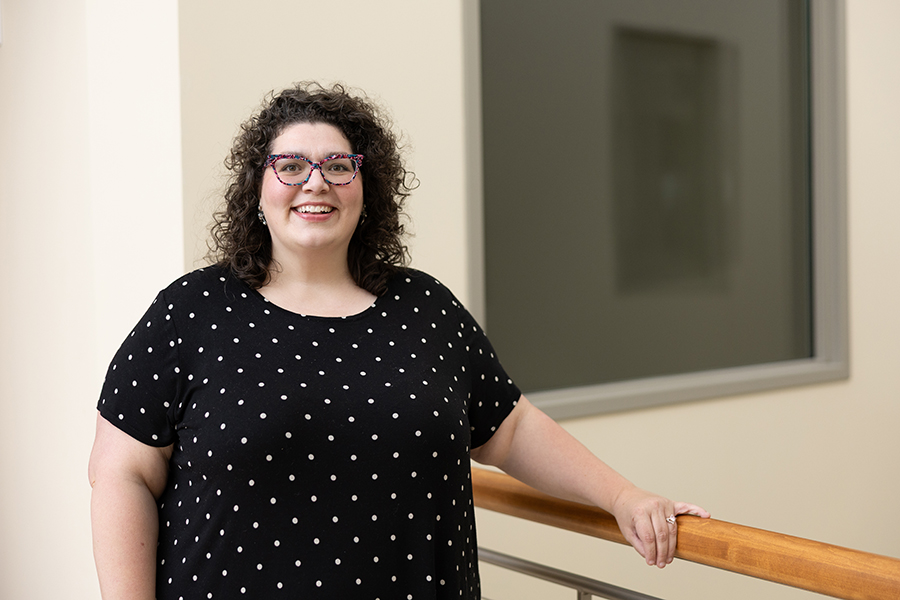TYPE
TOPIC
“He spent summers hunting for Ellensburg blue agates.
And he reminded me of my dad.
I know … countertransference.
But he smelled like Old Spice.
And rainy mornings.
And Alaska.”
This excerpt comes from I Will Hold Your Memories, a heartfelt poem by Amanda Lilly, a faculty member in the University of Wisconsin-Superior’s Human Behavior, Justice, and Diversity Department. Her moving piece won first place in the Iowa National Poetry Competition for Social Work.
“It was about a hospice patient I had years ago and the connection I now feel with my dad,” said Lilly, assistant professor of social work at UW-Superior. “It’s a full-circle moment – transitioning from one side of the caregiving experience to the other as a social worker.”
Lilly’s role in the social work program inspired her to write the poem. She viewed artistic expression as a form of catharsis and turned to her creative talents to process personal experiences.
“Creative writing, and any creative outlet, is a wonderful way to practice self-care and work through some of the trauma we witness,” Lilly said. “I sat down one evening and knocked it out. I even submitted it without thinking much about it. I had no hopes of winning – it was just something I needed to do.”
Her poem will be published on the National Association of Social Workers (NASW) website, the poetry contest’s site and in an upcoming edition of The New Social Worker magazine. Along with publication, Lilly received a $200 award in recognition of her work.
For Lilly, receiving acknowledgment for her writing wasn’t entirely new. At 13, she had been published in a poetry anthology for young Americans. Still, this recent award reignited her passion.
“I was shocked,” she said. “I had put it out of my mind. I just needed to do it for the process. I love poetry and writing – I journal and things like that – but I hadn’t nurtured that part of myself in so long. So, it was pure shock.”
Her creative skills have also benefited students in her UW-Superior classes.
“Last semester, we worked on a project called Art as Expression, where students researched a social issue linked to trauma and identified an artist whose work was motivated by that experience,” Lilly said. “For the final project, students created their own pieces in any medium, helping them connect with theoretical concepts in a more personal and meaningful way.”
These projects allowed students to explore and reflect on the emotional demands of the social work profession.
“Social work is a career with a lot of burnout,” said Lilly. “It’s a high-stress job, and social workers must prioritize self-care. Creative outlets like writing are vital in helping us process the trauma we often encounter.”
This recent recognition affirms Lilly’s belief in the power of creative expression and its importance in both personal healing and professional development.
“It was such a lovely validation that the work I do matters,” she said. “It made me feel like I’m on the right path – one that not only supports my students but also allows me to continue growing. I thought, ‘This might really be a thing for me’ – using creativity as a way to process and heal.”
By Olivia Fleming, English major and student writer for UWS.
